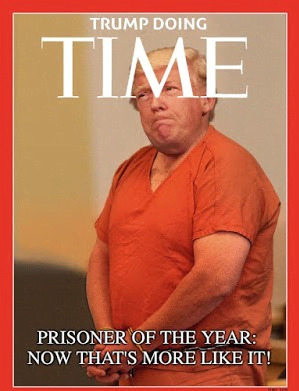
Legal expert says Trump could be prosecuted, go to jail over pardons
Boston, December 29 (RHC)-- U.S. President Donald Trump’s recent executive pardons for his friends and political allies amount to criminal obstruction of justice -- an offense for which the president could be prosecuted and potentially go to jail once he leaves office, says a prominent constitutional law expert.
“A godless U.S. president who appears incapable of forgiveness has seemingly perverted this instrument of mercy into another grave threat to the rule of law,” Laurence Tribe, a professor of continental law at Harvard University, wrote for the Financial Times, referring to the U.S. Constitution’s executive pardon power.
Tribe said that Trump’s action, weeks before he leaves office, would set a perilous precedent for future presidents who might be inclined to abuse this power without constraint. “Donald Trump’s recent twisting of the pardon power risks leaving a damaging legacy: a blueprint for manipulating this vestige of royal prerogative to place presidents and their cronies above the law. But a remedy exists: investigation and potential prosecution. We must treat any obstructions of justice we uncover as the crimes they are,” he wrote.
In recent days, President Trump pardoned dozens of people, including some of his closest allies such as his former campaign chairman Paul Manafort, Republican operative Roger Stone and Charles Kushner, a real estate magnate who is the father of Trump’s son-in-law Jared Kushner.
In a bizarre move, Trump also pardoned four former Blackwater contractors who were convicted of killing at least 14 Iraqi civilians in Baghdad in 2007.
Tribe said that while Trump’s pardons for war criminals and his relatives are “corrupt” and “contemptible for their intrinsic immorality,” his grants of clemency to his close advisers -- Manafort and Stone -- will have far more dangerous implications by placing the president and his inner circle above the law.
“These pardons appear to be the latest steps taken which may in effect have hindered inquiries into crimes that Mr. Trump’s close associates have been convicted of committing. Put plainly, these pardons could potentially amount to criminal obstruction of justice or bribery,” he explained.
The professor said the U.S. Constitution has devised impeachment and removal from office for any president misusing his authorities, including the pardon power. However, he added that the chance of Trump getting impeached for a second time before he leaves office was slim to none.
“But the constitution expressly contemplates another solution — post-presidency criminal prosecution — saying that an impeached president ‘shall nevertheless be liable and subject to Indictment, Trial, Judgment, and Punishment, according to Law,’” he noted.
“Pardons used as a means of obstructing justice are integral parts of criminal conduct precisely because the president has the formal power to grant them. The very breadth of that power enables a president to deploy it as a tool of criminality. If pardons used to reward silence could be invalidated by the courts, they would be worthless to their recipients and useless in a scheme to interfere with a formal inquiry,” Tribe pointed out.
“The result is not to negate the pardons issued but to expose a president to prosecution for the way he deployed them. If Mr. Trump abuses pardons to shield himself and key allies from justice, that could be charged as criminal obstruction of justice, an abuse of the constitutional power of clemency to accomplish an illegal end,” he added.
Trump will lose his immunity upon leaving office and faces the prospect of lawsuits and criminal investigations. The president’s allies have suggested he could use his authority as commander-in-chief to pardon himself preemptively.
Trump has previously said he had the “absolute right” to pardon himself. The president, however, has insisted he would not have to do so for he has committed no wrongdoing.
Tribe said as the Justice Department stipulated in 1974, when then President Richard Nixon was contemplating issuing a pardon for himself, a self-pardon is not within the president’s constitutional power. “A self-pardon twists the text of the constitution — one doesn’t ‘grant’ things to oneself — and violates the centuries-old tenet that nobody can be trusted to judge his own case. It would also liberate every president to ignore federal criminal laws while in office, placing the holder functionally outside the law,” he said.
“Perhaps the only way to limit this potential misuse of the pardon power would be to prosecute an ex-president who tries to use it on himself,” the professor noted. “If Mr. Trump seeks to pardon himself, the next attorney-general must zealously investigate him and prosecute any federal crimes that are uncovered.”

